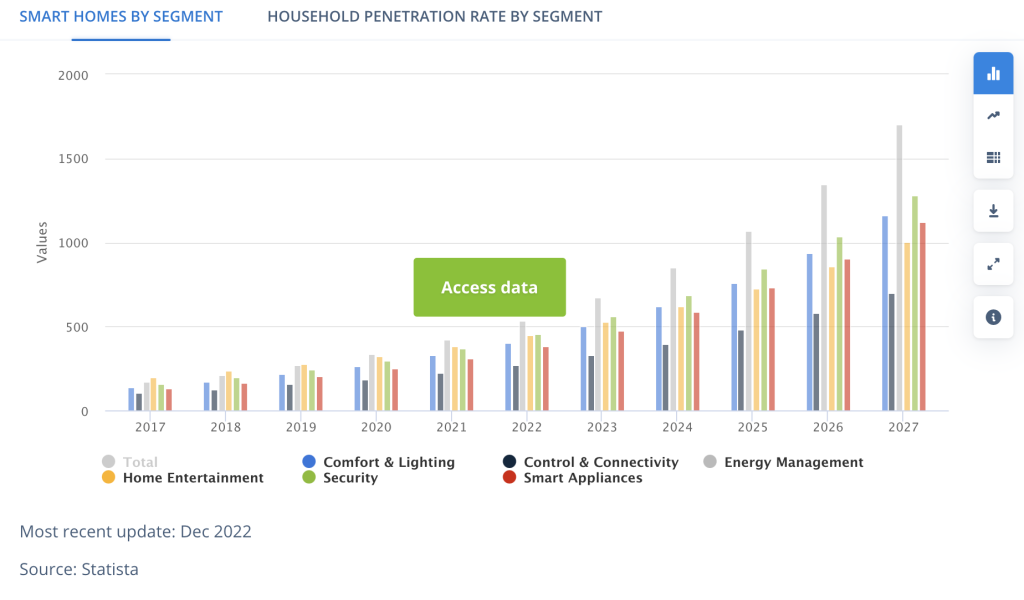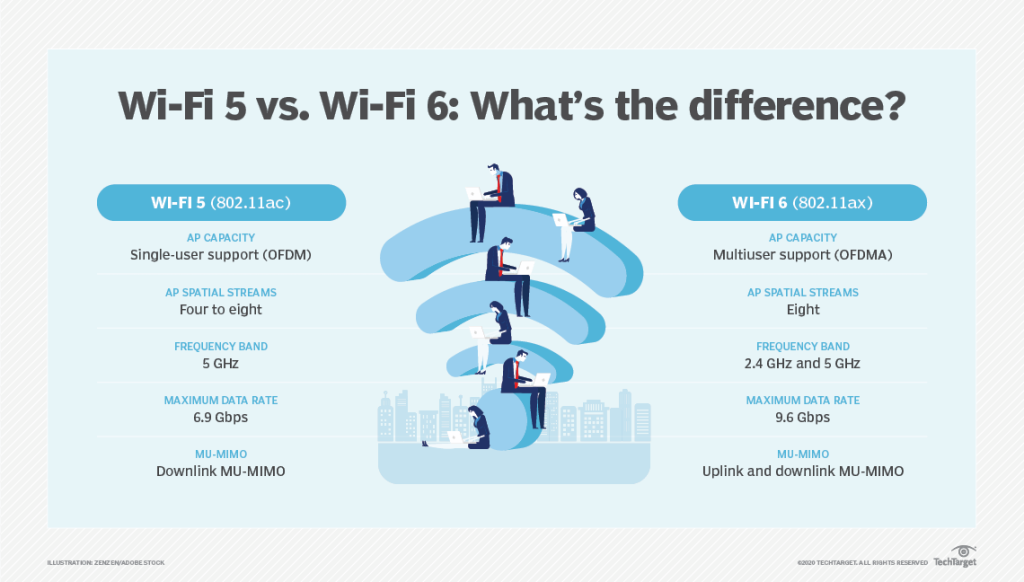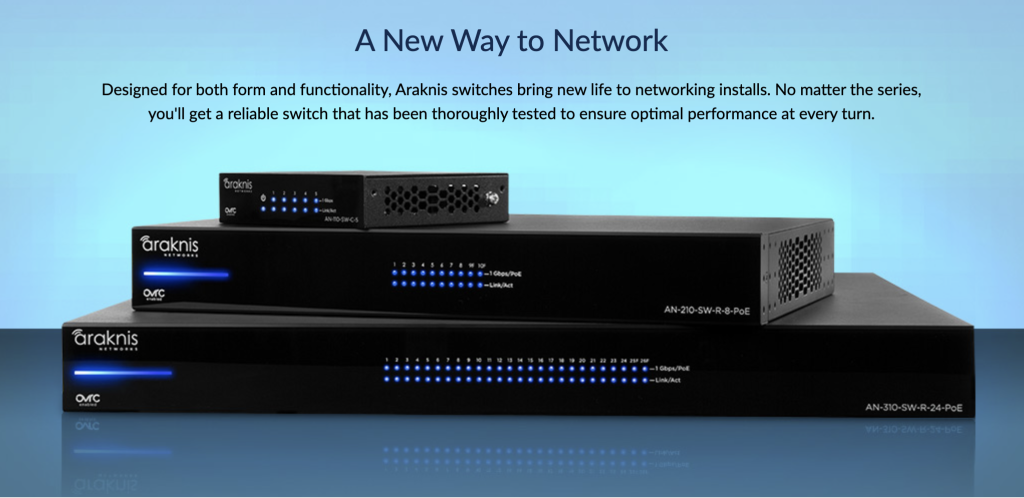Protecting Your Smart Home or Business: Why Cybersecurity Matters
As we continue to rely on technology to make our lives more convenient and connected, the importance of cybersecurity has become increasingly vital. With the rise of smart homes and businesses, the risk of security breaches has also increased. From personal data to sensitive business information, a cybersecurity breach can have severe consequences. In this post, we will discuss the importance of cybersecurity in smart homes and businesses. Additionally, we will provide tips on how to protect your devices and networks from potential security threats.
In 2023, over 43 billion internet-connected devices are predicted to exist, generating, sharing, collecting, and utilizing data in various ways. Although IoT devices simplify our lives, they also expose us to various forms of cyberattacks. With each device we add to our environments, we create new opportunities for malicious actors. As the number of devices surges, businesses, manufacturers, and security experts will increase efforts to prevent these attackers from accessing our valuable data.
The Risks of Smart Homes and Businesses
The last decade has seen a significant rise in smart homes and businesses in Hungary. According to a report by Statista, the number of smart homes has grown from 85 thousand in 2016 to 174 thousand in 2020. This represents a compound annual growth rate of 20.6%. In the HungarianSmart Home market, the number of active households is expected to amount to 1,175.00k users by 2027.
Similarly, the adoption of smart technologies in businesses has also increased. A survey conducted by Deloitte found that 42% of Hungarian companies were planning to invest in the Internet of Things (IoT) technologies, which include smart devices and sensors. This shows a growing interest in smart technologies in both residential and commercial sectors in Hungary. However, with the increasing use of smart devices, the risk of cybersecurity threats has also risen. This makes it crucial for homeowners and businesses to take measures to protect their devices and networks.

Some examples of recent cybersecurity breaches in the smart home and business sectors that have occurred globally. One example is the Ring camera hacking incident in 2019. Hackers gained unauthorized access to home security cameras – including those in Hungary. More recently, the Hungarian online store, Háztartásicikk.hu, suffered a data breach. In 2022, the customer data of more than 200 million Twitter users was leaked including names, email addresses, usernames, and phone numbers. While these incidents may not be specific to Hungary, they highlight the potential security risks that come with the use of smart devices. Furthermore, the importance of cybersecurity measures to prevent such breaches.
The Importance of Cybersecurity
Protecting smart homes and businesses from cyber threats is of great significance. Cybersecurity breaches can have severe consequences, ranging from personal privacy violations to financial losses and reputational damage. In the case of smart homes, hackers can gain unauthorized access to personal devices, such as security cameras or thermostats. They can use the data obtained to perform malicious activities or even steal sensitive information, such as credit card details.
Similarly, in the case of smart businesses, cyber attacks can lead to the loss of critical data, such as customer information or financial records. This can result in significant financial and reputational damages. A cybersecurity breach can also lead to the loss of productivity and revenue. And in some cases, it may even cause businesses to shut down entirely. Therefore, it is vital to protect smart homes and businesses from cyber threats to safeguard personal data, maintain productivity, and protect financial stability.
The Potential Consequences of a Cybersecurity Breach
A cybersecurity breach can have severe consequences for both individuals and businesses. Some potential consequences of a cybersecurity breach include:
- Data theft: Hackers can gain access to sensitive information, such as financial records, customer data, or personal information.
- Financial loss: Including the cost of data recovery, legal fees, and lost revenue due to downtime.
- Reputational damage: Leading to a loss of trust among customers or clients.
- Business disruption: Loss of productivity, and the inability to serve customers.
- Legal consequences: Including fines, lawsuits, and regulatory penalties.
Overall, the consequences of a cybersecurity breach can be far-reaching and severe. It is critical for individuals and businesses to take appropriate measures to protect themselves from such attacks.
Tips for Protecting Smart Homes and Businesses
To protect devices and networks from cyber threats, there are several practical tips that individuals and businesses can follow. Firstly, it’s important to keep devices up to date with the latest software and security patches to prevent hackers from exploiting known vulnerabilities. Strong passwords and two-factor authentication should also be used to prevent unauthorized access to accounts and devices. Reputable antivirus software can help detect and prevent malware infections and other cyber threats. To avoid falling for phishing scams, suspicious emails or messages should be avoided, and sender identity should be verified before sharing sensitive information. Wi-Fi networks should be secured with a strong, unique password. Additionally, access to devices and networks should be restricted to trusted users only. Finally, data should be regularly backed up to protect against data loss in the event of a cyber attack.

Anyone operating on the internet, especially those who work from home and use multiple devices, must consider endpoint security. Endpoint security involves securing all devices, or “endpoints”, within the network, as each device added creates another potential entry point for cybercriminals to attack. Designing a smart home requires seeking the expertise of a networking professional who specializes in securing the endpoint devices in the network, as relying solely on an electrician may not be sufficient to safeguard against potential cyber threats.
The Role of WiFi 6 in Cybersecurity
Wi-Fi 6 is the new standard for increased speed, coverage, and capacity. Billed as “high-efficiency wireless,” IEEE designed Wi-Fi 6, also known as 802.11ax, works faster but also smarter. Wi-Fi 6 can improve cybersecurity in smart homes and businesses in several ways. Firstly, it offers enhanced encryption capabilities that make it more difficult for hackers to intercept and decode wireless signals. Additionally, it supports the latest WPA3 security protocols and device authentication, which provide stronger protection against unauthorized access.

Better network segmentation is enabled by Wi-Fi 6, which allows the isolation and containment of traffic in specific network areas, limiting the spread of cyber threats. Finally, Wi-Fi 6 supports multi-user access, allowing devices to communicate with the network simultaneously without sacrificing speed or security. This reduces the risk of network congestion and the potential for cyber attacks caused by overwhelming the network.
A Fast and Efficient Network
Araknis Networks designs their WiFi 6 products to offer faster speeds, improved coverage, and enhanced security for smart homes and businesses. Here are some key features of Araknis Networks’ Wi-Fi 6 products:
- Enhanced Speed: Wi-Fi 6 supports higher data transfer rates, which means faster internet speeds for connected devices. Araknis Networks’ WiFi 6 products offer speeds of up to 2.4 Gbps, which is almost three times faster than the previous WiFi 5 standard.
- Improved Coverage: Wi-Fi 6 uses advanced technologies such as MU-MIMO (Multi-User Multiple Input Multiple Output) and OFDMA (Orthogonal Frequency Division Multiple Access) to improve coverage and reduce interference. This means that more devices can connect to the network at once without sacrificing performance.
- Better Security: Araknis Networks’ Wi-Fi 6 products support the latest security protocols, including WPA3 and Enhanced Open, which provide stronger encryption and protection against security threats. They also include advanced features such as VLAN tagging and network segmentation, which help isolate potential security threats.
- Easy Setup and Management: Araknis Networks’ Wi-Fi 6 products come with a user-friendly interface and mobile app, making setup and management easy for homeowners and IT professionals. They also support cloud management, which allows remote access and monitoring of the network.
- Future-Proof: Wi-Fi 6 is the latest wireless standard and is expected to become the new standard for smart homes and businesses. Investing in Araknis Networks’ Wi-Fi 6 products ensures that your network is future-proof and ready to support the latest technologies and devices.
Overall, Araknis Networks’ Wi-Fi 6 products offer significant improvements in speed, coverage, and security compared to previous wireless standards. They are a great choice for homeowners and businesses who want to upgrade their network and ensure reliable connectivity for their smart devices.

Control4 Automation and Wi-fi 6
Regarding Wi-Fi 6, Control4 has incorporated the new wireless standard into its systems to provide faster and more reliable connectivity to smart home devices. This means that devices connected to a Control4 system will experience improved performance and reduced lag times. By incorporating Wi-Fi 6, Control4 is able to provide homeowners with a secure and efficient home automation experience. The lightning-fast speeds of Wi-Fi 6 combined with the unmatched control provided by OvrC Wi-Fi management delivers enhanced performance and convenience to your Control4 home or business.
Conclusion
In conclusion, cybersecurity is a critical concern for both smart homes and businesses in Hungary and across the world. With the rise of smart technology, the potential for cyber threats has increased, and it’s important for individuals and businesses to take steps to protect their devices and networks. By following practical tips such as keeping devices up to date, using strong passwords and two-factor authentication, and regularly backing up data, users can reduce the risk of cyber attacks. Additionally, the implementation of advanced wireless technology such as Wi-Fi 6, with its improved security features, can provide an extra layer of protection against cyber threats. Ultimately, investing in cybersecurity measures is essential to secure the future of smart homes and businesses.
Security and privacy is a high priority for S3, our customers and partners. You can find more information about Control4 privacy practices here. We will always strive to give home and business owners the best and safest experience possible. Take action today to protect yourself and your business from potential cyber attacks.
Want to learn about the way Control4 can give you more peace of mind? Contact us to learn more!



0 Comments